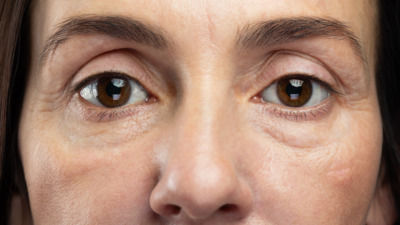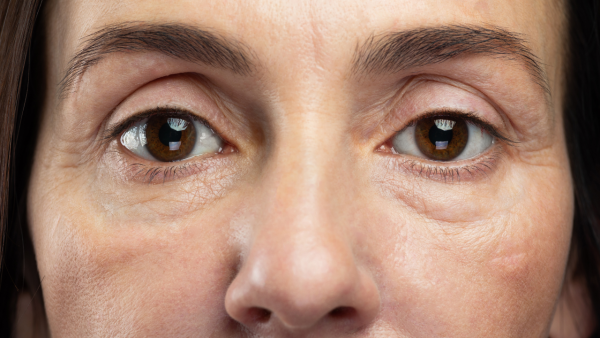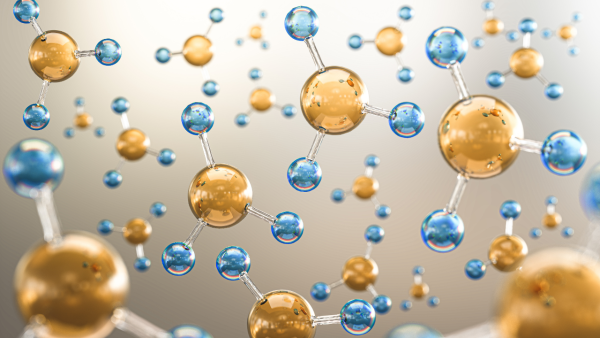
As we grow older, the cells in our bodies gradually lose their function and amongst all the reasons, there is one main reason for this, something called cellular senescence . Senescent cells are cells that have entered into a state of inactivity, where they no longer grow and divide. Although it is a natural aspect of aging , such cells do not get eliminated. Rather, they remain in the body and excrete toxic substances that will harm adjacent cells. This accumulation of senescent cells has been associated with most age-related ailments like heart disease, diabetes, neurodegenerative disorders like Alzheimer's, and even cancer.

across the globe are also trying their best to learn how things go wrong inside a cell when it gets senescent. Through this, they aim to discover methods of limiting the impact of aging on an individual and enhancing their health. A group of researchers at Osaka University in Japan recently discovered significant things regarding a protein named AP2A1 and a drug called IU1 , and they may revolutionize the way people perceive aging.
What is AP2A1

is a protein within our cells. It plays an essential role in a mechanism known as clathrin-mediated endocytosis. Clathrin-mediated endocytosis functions as a delivery system within the cell, allowing the cell to bring necessary molecules and nutrients into the cell. It can be thought of as a regulated door that determines what gets into the cell and what should be kept outside.
But AP2A1 does more than assist with this delivery system. It is also linked to the cell's skeleton, to structures called stress fibers. Stress fibers serve to keep the shape of the cell intact and enable it to move. They consist of proteins that function like minuscule cables within the cell.
The researchers at Osaka University discovered that as cells age, the level and activity of AP2A1 alter. This influences the structure of the stress fibers and the movement of the cell. When the researchers lowered AP2A1 in aged cells, most of the aging characteristics in those cells were reversed. The cells began to act more like young, healthy cells. This indicates that AP2A1 has a significant function in regulating the aging process within cells.
What is IU1 and how does it work

IU1 is a drug that inhibits a particular enzyme within cells known as USP14. Enzymes are proteins that accelerate chemical reactions in the body, and USP14 plays a role in clearing away damaged or unwanted proteins from the cell.
When IU1 inhibits USP14, it induces stress within the cell. This stress can force cells into senescence, which means the cell is no longer able to divide and ages prematurely. Researchers apply IU1 in experiments to learn how cells react to stress and aging.
Notably, the Osaka University scientists also found that IU1 is able to augment two key systems of waste removal within cells-proteasomes and autophagy. Proteasomes destroy misfolded proteins, whereas autophagy contributes to recycling aged or damaged cell components. By augmenting both of these in tandem, IU1 enables cells to remove toxic waste more effectively. This dual effect can decrease muscle weakness associated with aging as well as enhance lifespan in model organisms.
How and why is this study importantThe older we are, the more senescent cells accumulate in our bodies. These cells, may lead to significant tissue damage and the rise of chronic diseases. Identifying means by which to control or eliminate senescent cells may have tremendous health implications
The Osaka University researchers' finding that AP2A1 impacts aging in cells provides researchers with a new target for therapy development. It may be possible to reverse or slow down some of the aging processes at the cellular level if drugs can be engineered to control AP2A1.
Furthermore, knowing how IU1 increases proteasome activity and autophagy offers greater understanding of the aging process. Such knowledge might translate into therapies that would eliminate toxic senescent cells or enhance cell function.
Meaning for human healthThis study may potentially develop drugs that enhance the way our cells age. These drugs would potentially prevent or cure diseases of aging, enhance healing of wounds, and enhance overall quality of life as individuals grow older.
Although this is preliminary research and there is more work to be done before treatments will be available, the research out of Osaka University is encouraging. In the near future, it could mean not only longer lives but healthier ones, where aging does not always mean decline, but a whole new chapter.
Disclaimer: This article is only meant for informational purposes.
 As we grow older, the cells in our bodies gradually lose their function and amongst all the reasons, there is one main reason for this, something called cellular senescence . Senescent cells are cells that have entered into a state of inactivity, where they no longer grow and divide. Although it is a natural aspect of aging , such cells do not get eliminated. Rather, they remain in the body and excrete toxic substances that will harm adjacent cells. This accumulation of senescent cells has been associated with most age-related ailments like heart disease, diabetes, neurodegenerative disorders like Alzheimer's, and even cancer.
As we grow older, the cells in our bodies gradually lose their function and amongst all the reasons, there is one main reason for this, something called cellular senescence . Senescent cells are cells that have entered into a state of inactivity, where they no longer grow and divide. Although it is a natural aspect of aging , such cells do not get eliminated. Rather, they remain in the body and excrete toxic substances that will harm adjacent cells. This accumulation of senescent cells has been associated with most age-related ailments like heart disease, diabetes, neurodegenerative disorders like Alzheimer's, and even cancer.


